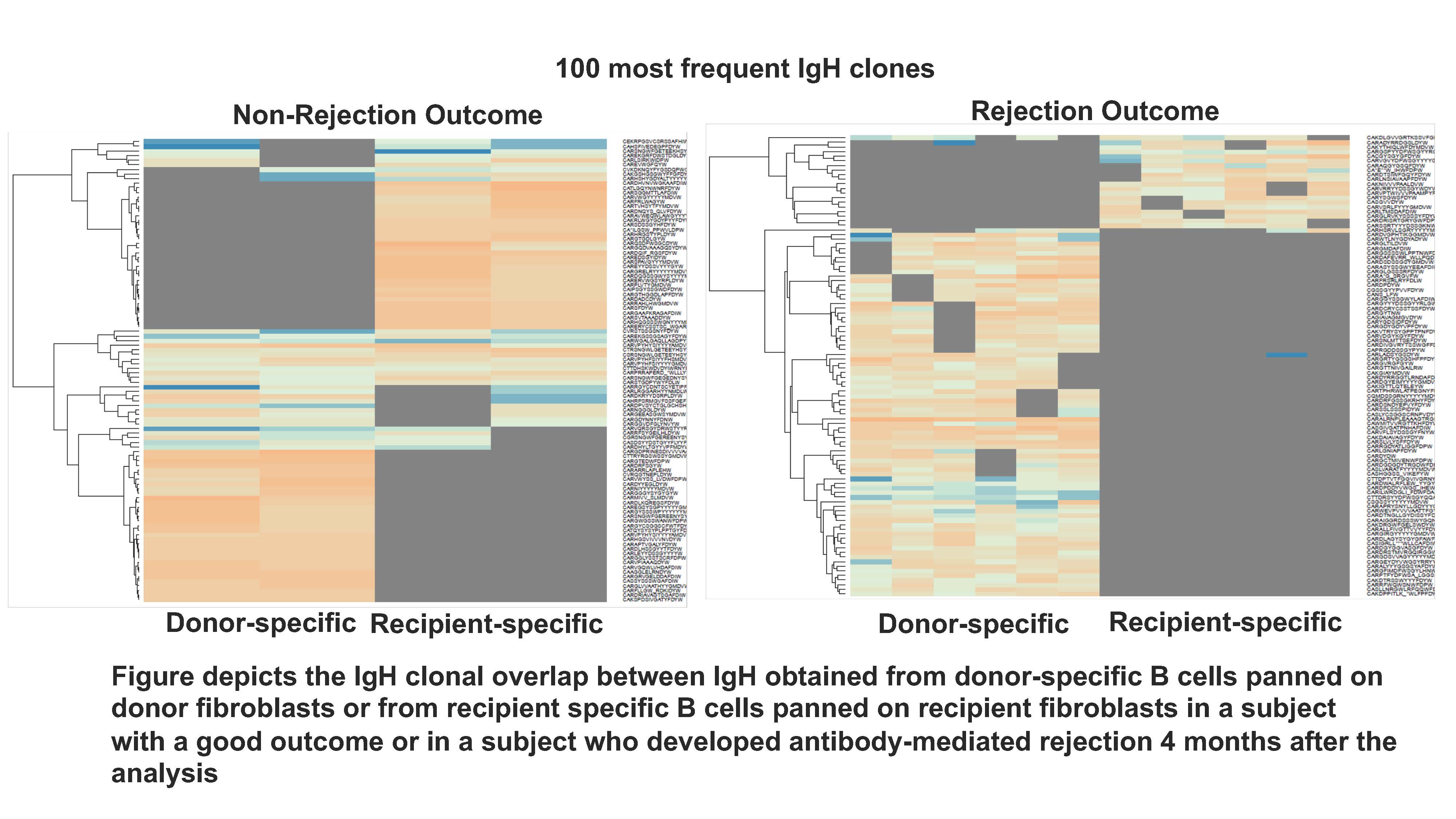B Cell Immunophenotypes in Transplantation
1University of Michigan, Ann Arbor, MI, 2Surgery, University of Michigan, Ann Arbor, MI, 3Pathology, University of Michigan, Ann Arbor, MI
Meeting: 2019 American Transplant Congress
Abstract number: A45
Keywords: Alloantibodies, B cells, Immunoglobulins (Ig), Lymphocytes
Session Information
Session Name: Poster Session A: B-cell / Antibody /Autoimmunity
Session Type: Poster Session
Date: Saturday, June 1, 2019
Session Time: 5:30pm-7:30pm
 Presentation Time: 5:30pm-7:30pm
Presentation Time: 5:30pm-7:30pm
Location: Hall C & D
*Purpose: B cells and B cell responses have been associated with favorable outcomes of transplantation in some setting and unfavorable outcomes in others. For example, operational tolerance is associated with higher numbers of B cells in blood and B cell transcripts in the graft yet acute and chronic rejection are associated with donor-specific antibodies (DSA) in blood and B cell clusters in grafts. What distinguishes the B cells associated with favorable versus unfavorable outcomes is presently unknown. The overall goal of the research was to define B cell immunophenotypes that distinguish recipients of kidney transplants destined to undergo rejection from those that have good outcomes.
*Methods: We asked whether and in what way the variable regions of Ig genes of donor-specific B cells might distinguish and potentially mediate favorable and unfavorable outcomes of renal transplantation. To address this question we studied non-sensitized recipients of kidney transplants from living donors (N=15) during the first year after transplantation. Donor-specific B cells and auto-specific B cells were separated and isolated based on adherence to donor cells and autologous cells respectively. The B cells were single cell sorted and Ig heavy and light chain variable regions were sequenced by Sanger or NGS (IgH only).
*Results: In recipients with stable graft function, donor-specific B cells were often manifestly auto-reactive. One third of the 100 most frequent clones of donor-specific B cells overlapped with recipient-specific B cell clones defined by unique CDR3 IgH sequences, suggesting that these clones were poly-reactive and potentially committed to producing non-pathogenic or “protective” antibodies. Consistent with that concept, the Ig variable regions of the clones were predominantly germline and the constant region heavy chain was IgM. In contrast, in recipients that experienced rejection after or at the time of sampling, donor-specific B cell clones did not overlap with recipient-specific B cell clones, the V region gene sequences progressively departed from germline over time and frequency of mutations was greater than the frequency in recipients with healthy grafts (p<0.0001).
*Conclusions: The presence of highly mutated Ig V region genes in donor specific B cells and a decrease in V regions encoding poly-reactive germline H and L months before rejection suggests the properties of Ig variable and constant region genes of donor-specific B cells in kidney transplant recipients may provide an early clue to graft outcome. Whether the antibodies or antigen receptors encoded by B cell Ig genes actually mediate these outcomes and by what mechanism(s) or these changes are imprinted incidentally as immunity or accommodation evolve remains to be determined.
To cite this abstract in AMA style:
Cascalho M, Mattos-Barbosa Mde, Farkash EA, Platt JL. B Cell Immunophenotypes in Transplantation [abstract]. Am J Transplant. 2019; 19 (suppl 3). https://atcmeetingabstracts.com/abstract/b-cell-immunophenotypes-in-transplantation/. Accessed February 22, 2026.« Back to 2019 American Transplant Congress

